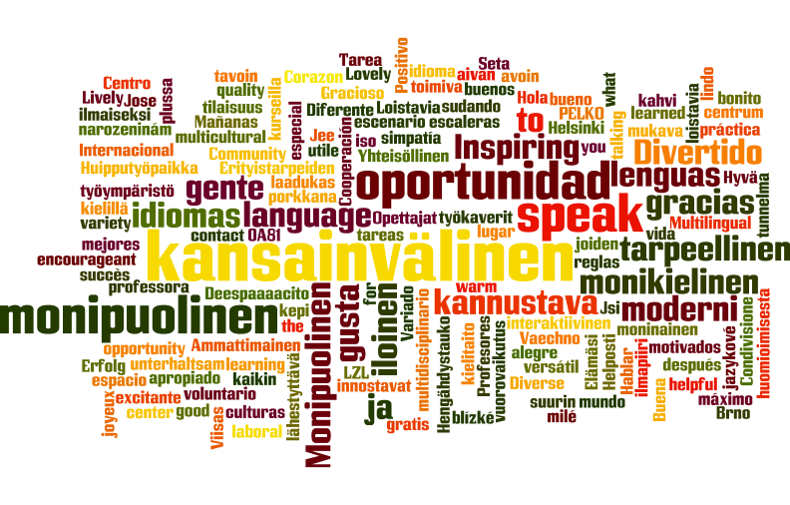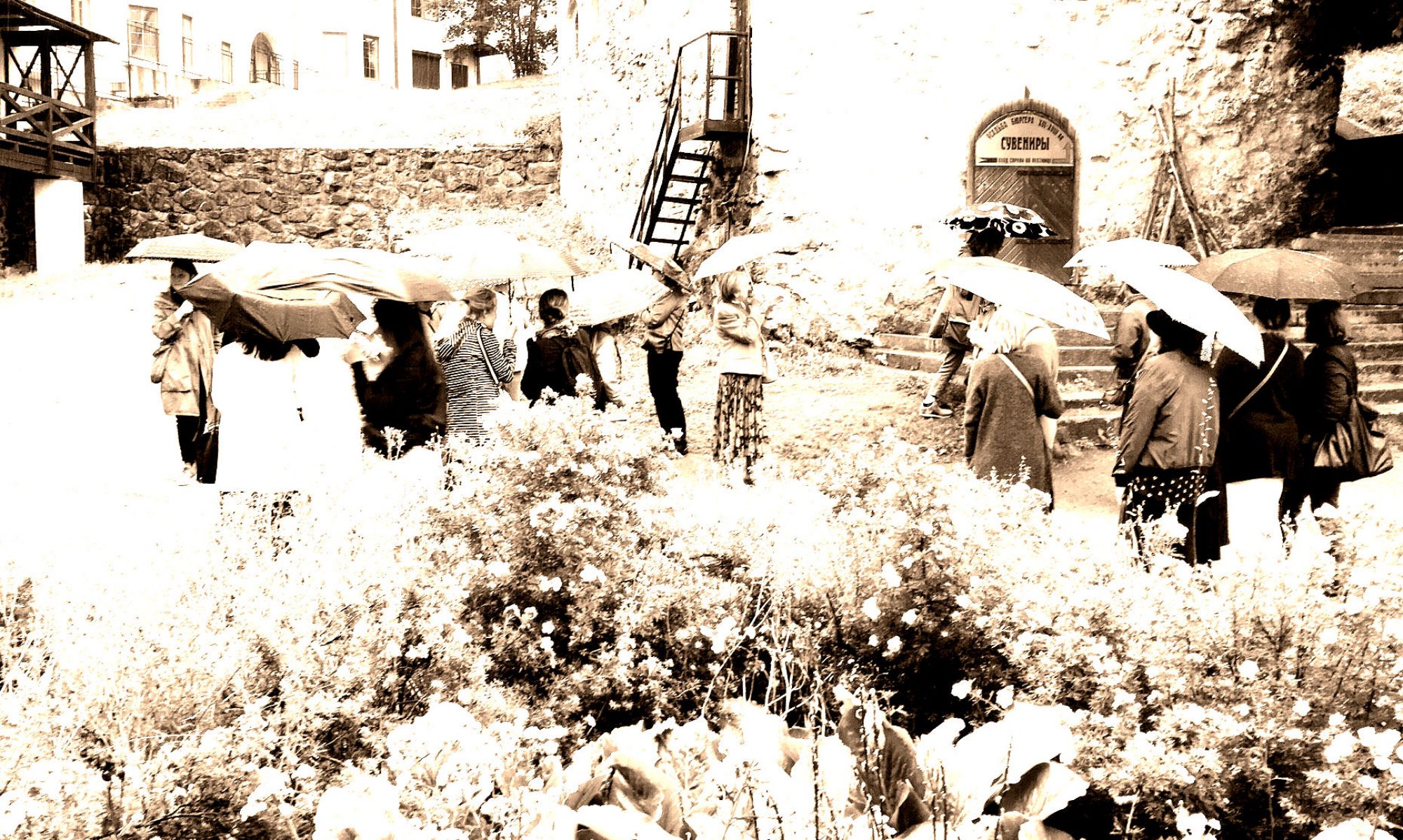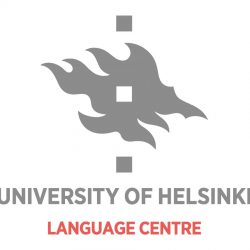
The University of Helsinki’s Language Centre celebrated its 40th anniversary in 2017. To mark the occasion, the Language Centre invited current and former staff, representatives of stakeholders and members of the University community in Helsinki and elsewhere to an anniversary seminar. The afternoon seminar entitled Että osaa ja uskaltaa kommunikoida (“The ability and courage to communicate”) was held on Friday, 20 October 2017 in the University’s Small Hall. The seminar paid tribute to the effective and award-winning history of the Language Centre, and the speakers also looked forward to the future of language learning.
The overarching themes of the seminar were cooperation throughout the University as well as a focus on students. In her opening address, Ulla-Kristiina Tuomi, director of the Language Centre, stressed how the Language Centre focuses on students. The title of the anniversary seminar came from a respondent to a survey published by the Language Centre in 2005 concerning the language skills needed in academic professions, as described by employers and employees. Tuomi said that the title is an apt description of the Language Centre’s operations and emphasised the significance of dialogue in all operations. The teaching offered by the Language Centre supports the overall objectives of the degree programmes as well as the growth of students as communicators and academic experts. The Language Centre’s services help the University develop into an increasingly international institution. The operations and objectives that serve the interests of the University as a whole are defined through dialogue with the University community.
At the anniversary seminar, the 40-year-old Language Centre received congratulations from Vice-Rector Sari Lindblom as well as Antti Hilden, chair of the Finnish network of university language centres (FINELC). Vice-Rector Lindblom stressed the key role of the Language Centre in developing the diverse academic language and communication skills of the University community and supporting field-specific language skills. Chair Hilden from the University of Tampere reminded us that language centres have cooperated with each other throughout their history. Hilden also thanked the University of Helsinki’s Language Centre for spurring on the network and working at the vanguard of the field.
MULTILINGUALISM AS A NATIONAL AND INTERNATIONAL GOAL
The essence of language proficiency and its identification formed the common thread of the talks and presentations at the anniversary seminar. The seminar experts reminded the participants that we need open and critical discussion on the sufficiency of language skills as well as on their demonstration and validation in our society.
Ilkka Turunen, special government adviser at the Ministry of Education and Culture, mentioned in his presentation that despite their obvious importance, language skills are not actually present in the well-known indicators of international success or in analyses of change factors, unless included in the requirements of immigration and trade or as part of industry and labour policy. However, our global world requires language proficiency, and the importance of Chinese, for example, is increasing as an academic language alongside the European languages.
Professor Riitta Pyykkö, vice-rector of the University of Turku, demanded in her speech that we protect multilingualism and the diversity of language use.
“As Finland becomes increasingly international, we must learn to accept that people speak Finnish in many ways,” she pointed out.
Pyykkö’s report on the status and development needs of the national language reserve was published on 13 December 2017. She says that Finland could do more to promote multilingualism, for example, through the native languages of immigrants. Internationally, English retains its strong position, but proficiency in other languages will also be important in the future.
WORKING FOR SIGNIFICANT LEARNING EXPERIENCES
Tuula Lehtonen, university lecturer of English at the Language Centre, gave a teacher’s perspective on how the Language Centre’s activities have developed over the past 40 years. The research basis, international dimension and digitalisation of operations are reflected in pedagogical choices, the consideration of students and the development of staff skills.
“We should create new visions because we will continue to need languages and communication skills, inspiring language teachers and skilled language centre professionals, meaningful learning opportunities and both digital and face-to-face meetings. Staff and students must cooperate effectively,” Lehtonen adds.
Two students also talked about their experiences of studying at the Language Centre. Iida Loivamaa talked about her path as a language learner from primary school to the present. Loivamaa’s speech outlined how she developed from a pupil with negative experiences in English language learning to an academic professional for whom English is a key working language. Loivamaa thanked in particular the Language Centre’s teachers and the course aimed at diverse learners.
International degree student Aliaksei Babets talked about his experiences of the Language Centre activities aimed at international students. Babets has participated in the activities both as a language learner and a course assistant and has been involved in planning and organising various events.
“The Language Centre engages students in planning operations from the very beginning. This has been a great opportunity for me,” Babets said, thanking the Language Centre’s staff.
Text: Janne Niinivaara

